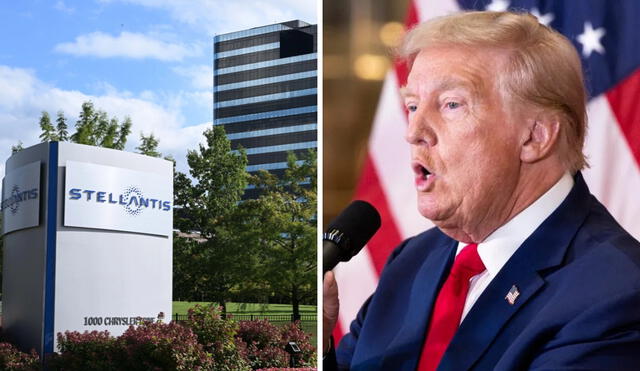Stellantis halts production at plants in Canada and Mexico amid Trump tariff concerns
Stellantis halts production as U.S. tariffs disrupt North American auto trade, sparking concerns over pricing, profitability, and future industry stability.

Stellantis has halted production at its Canadian and Mexican plants due to the impact of Trump-era tariffs on automotive manufacturing. The company had initially shifted some operations to avoid these tariffs but now faces difficulties as these trade policies continue to affect its North American operations. The tariffs on vehicles and components have created significant financial pressures for Stellantis. As a result, this move is a direct response to the ongoing uncertainty in the global trade environment.
Stellantis pauses production as trade tensions and tariffs disrupt automotive sector stability
The decision underscores the broader impacts of trade tensions in the automotive sector. Stellantis’ production pause highlights the challenges companies face while adjusting to shifting trade policies. This move also raises concerns about future stability in the industry. Given the reliance on international trade for components and finished vehicles, manufacturers are forced to reconsider their strategies.
The automotive sector is grappling with these ongoing tariff concerns. High tariffs on imports from Canada and Mexico are especially problematic for companies like Stellantis. The tariffs hinder the company’s ability to maintain competitive pricing and profitability. As tariffs remain in place, companies in the automotive sector are likely to face further difficulties in managing costs and production timelines.
Stellantis halts production amid U.S. tariffs, highlighting the strain of trade policies on automakers and the need for tariff revisions.
This situation demonstrates the broader economic implications of President Trump's trade policies. While intended to protect domestic manufacturing, these tariffs have led to unintended consequences for automakers across the continent. The pressure on Stellantis exemplifies how global companies must navigate these shifting policies to remain viable. Their experience may serve as a cautionary tale for other businesses affected by these ongoing trade tensions.
Stellantis’ decision to temporarily halt production highlights the need for new approaches in North American trade agreements. The company’s experience could lead to more discussions about revising tariff policies. For now, Stellantis must find ways to manage the financial strain caused by these trade barriers. The automotive sector will closely watch how this situation unfolds in the coming months.












